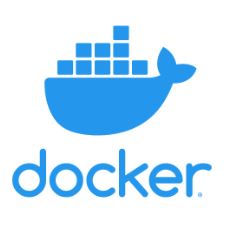GitLab and GitHub are two of the most popular platforms for version control and collaboration in the world of software development. Both offer a range of features that facilitate code management, collaboration, and continuous integration. However, there are key differences between the two that may influence a developer or organization’s choice. In this article, we will compare GitLab and GitHub in various aspects to help you make an informed decision.
Hosting and deployment:
-
- GitHub:
- GitHub is a cloud-based platform owned by Microsoft, offering both cloud-hosted and self-hosted solutions.
- It provides a user-friendly interface and is widely adopted by open-source projects.
- GitLab:
- GitLab, on the other hand, is an open-core platform that offers both cloud-hosted and self-hosted solutions as well.
- GitLab is known for its emphasis on providing an end-to-end solution, including features beyond version control like CI/CD and issue tracking.
- GitHub:
Collaboration and workflow:
-
- GitHub:
- GitHub has a robust and intuitive pull request workflow.
- Its discussion features, like inline commenting, make collaboration seamless.
- GitHub Actions is the CI/CD solution integrated into the platform.
- GitLab:
- GitLab also supports an efficient merge request workflow, and its discussion features are comparable to GitHub.
- GitLab CI/CD is a powerful built-in tool that allows developers to automate their pipelines easily.
- GitHub:
Community and ecosystem:
-
- GitHub:
- GitHub has a vast and active community, making it a hub for open-source collaboration.
- A large number of third-party integrations and tools are available in the GitHub Marketplace.
- GitLab:
- GitLab’s community is growing steadily, and it has a strong presence in the enterprise sector.
- GitLab also provides an integrated ecosystem but may not have as many third-party integrations as GitHub.
- GitHub:
Cost:
-
- GitHub:
- GitHub offers free public repositories, making it a preferred choice for open-source projects.
- For private repositories and additional features, GitHub offers various pricing plans.
- GitLab:
- GitLab provides a free version for both public and private repositories.
- It also offers paid plans for additional features, support, and scaling requirements.
- GitHub:
Security:
-
- GitHub:
- GitHub has a strong security model, with features like two-factor authentication and vulnerability scanning.
- Security advisories and dependabot features help in keeping dependencies up to date.
- GitLab:
- GitLab also focuses on security, providing features like container scanning, dependency scanning, and more.
- GitLab’s commitment to DevSecOps is evident in its security-first approach.
- GitHub:
Scalability:
-
- GitHub:
- GitHub is widely used by large enterprises and open-source projects alike, showcasing its scalability.
- Microsoft’s backing ensures continuous development and scalability improvements.
- GitLab:
- GitLab is known for its scalability, and the platform is capable of handling large codebases and extensive CI/CD pipelines.
- GitHub:
Both GitLab and GitHub are powerful platforms with their own strengths and weaknesses. The choice between them often depends on specific project requirements, workflows, and individual or organizational preferences. GitHub remains a strong choice for its user-friendly interface and extensive community, while GitLab’s all-in-one approach and focus on DevSecOps may be particularly appealing to those looking for a comprehensive solution. Ultimately, understanding your project’s needs and considering factors like cost, collaboration features, and scalability will help you make an informed decision between GitLab and GitHub.









